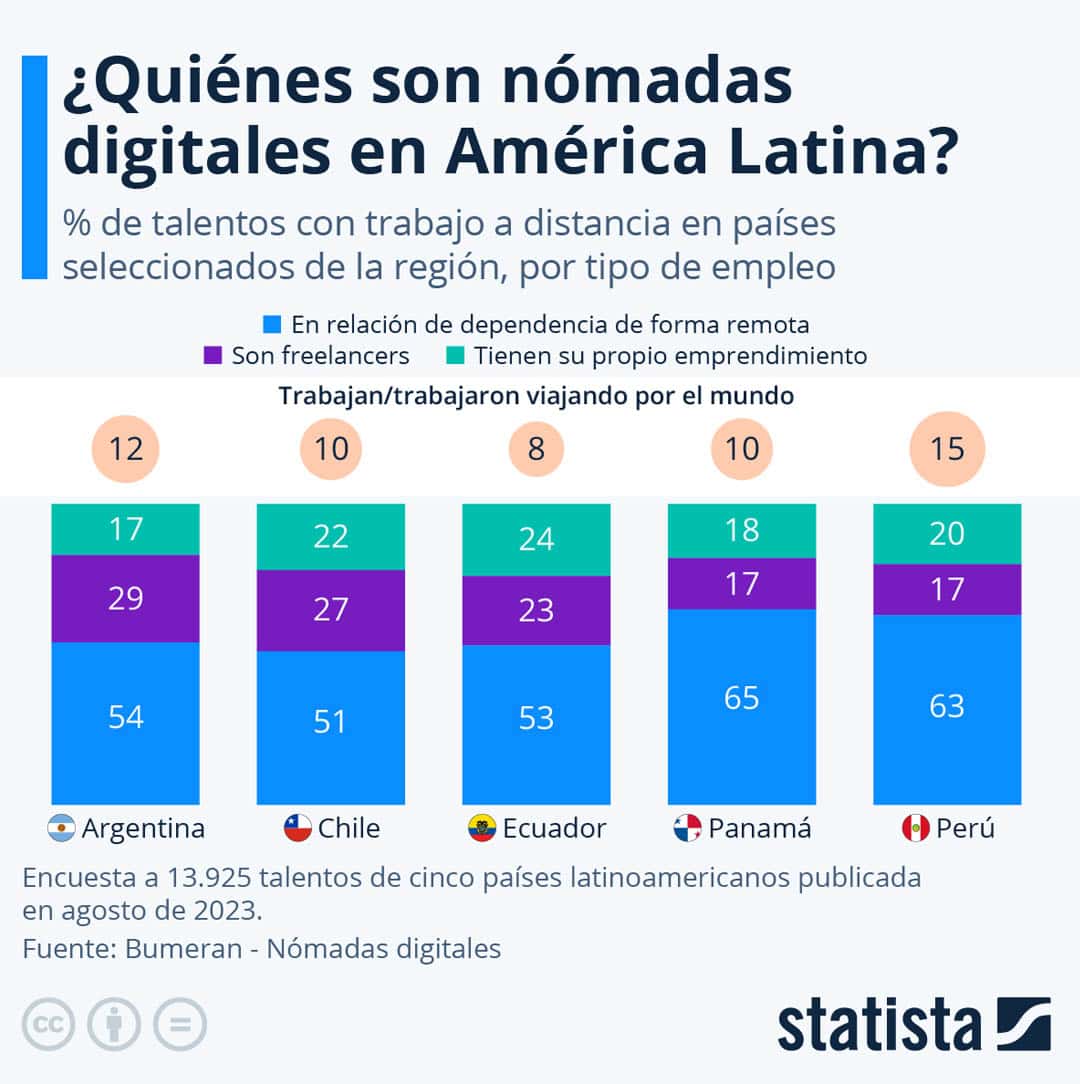
Por Ayax Bellido
October 11, 2023
The global work landscape is undergoing a profound metamorphosis. According to a joint study by WeWork and Page Resourcing, 82% of workers in Mexico already enjoy the benefits of flexible work, a shift that has significantly boosted their performance. Within this changing context, two generations stand out: millennials and centennials, emerging as leaders of the digital nomad movement.
The term “digital nomad” is more than just a descriptor. It encapsulates a disruptive shift in the work paradigm. These individuals, equipped with advanced digital skills and a global worldview, are redefining the meaning of work. With its rich cultural heritage and technological advancements, Mexico stands out as a leader in this transformation.
Observing this paradigm shift, many countries have decided to adjust and tailor their policies to be more appealing to these avant-garde workers. Mexico has been proactive in this adaptation, launching visa programs specifically designed for remote workers, allowing them to collaborate with international organizations and reside in the country for up to six months, bypassing the bureaucracy of traditional work permits.
One story that stands out in this movement is that of Mariana Regueira. While she began her career in pedagogy and worked in human resources, Mariana felt the call for change. She sought and found an opportunity in Le Wagon’s Web Development Bootcamp, an accelerated technology training. This choice redirected her career to a remote position in a Brazilian company and allowed her to work from anywhere in the world.
Drawing on her experience, Mariana shares several key insights:
The trend of digital nomadic work shows no signs of slowing down. It’s expected that by 2023, and possibly beyond, it will continue to grow. Given its cultural richness and geographic position, Mexico is ideally poised to lead and benefit from this trend. With the right approach and adaptability, many more can enjoy the advantages and freedoms of this modern lifestyle, just as Mariana has.
In a broader view, a recent survey from Statista reveals who the digital nomads are in five Latin American countries, highlighting workers who perform their duties remotely and have a dependent relationship with their employers over other profiles like freelancers or those with their entrepreneurship.

Por Stiven Cartagena
January 12, 2026